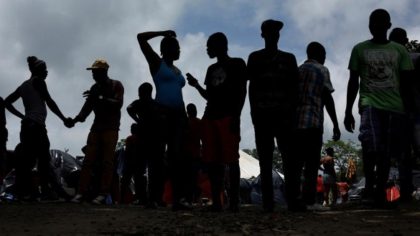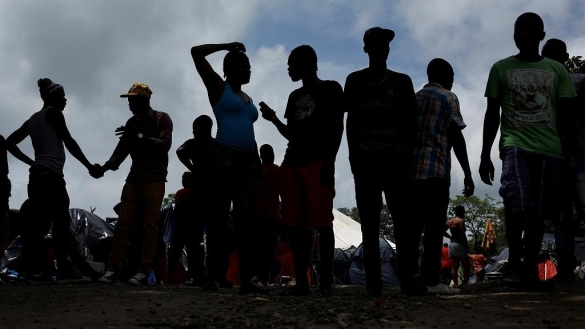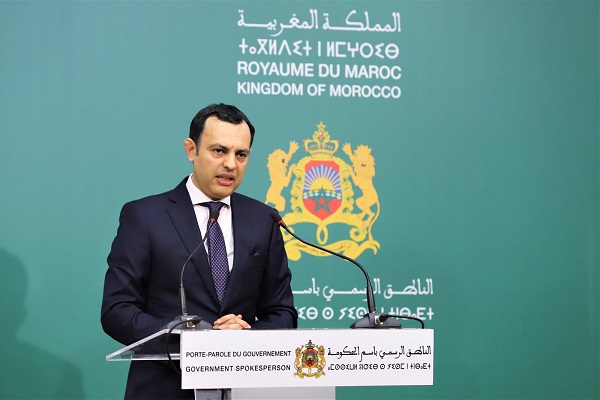 Millions of migrants and refugees from the four corners of the world are looking up with mixed feelings to Marrakech (Morocco) wherein world leaders and Government officials from more than 150 States formally adopted this Monday a ground-breaking UN-led global agreement on migration.
Millions of migrants and refugees from the four corners of the world are looking up with mixed feelings to Marrakech (Morocco) wherein world leaders and Government officials from more than 150 States formally adopted this Monday a ground-breaking UN-led global agreement on migration.
The UN Global Compact on Migration was formally approved on Monday in Marrakech, after the oral proclamation and the traditional hammer blow, in front of some 150 countries gathered in the intergovernmental conference.
“This moment is the product of effort,” UN Secretary-General Antonio Guterres said at the opening of the debate. “We must not succumb to fear or false narratives” about migration, he said. Guterres has denounced the “many lies” spread on this agreement, which must now be the subject of a final vote of ratification, December 19 at the UN General Assembly.
The Pact aims to strengthen “cooperation on international migration in all their aspects”. The sensitivity of the subject has pushed several countries in the world to deny their commitments in favor of this text yet “legally non-binding”.
The UN Chief thanked all countries gathering in Marrakech for their commitment “to agreeing a common approach to international migration in all its dimensions.”
“Your participation in this high-level event is a clear demonstration of the importance our global community places on the pursuit of the better management of international migration, through a cooperative approach”, said the UN chief in a moving address at the opening of the intergovernmental conference.
For her part, UN Special Representative for International Migration Ms. Louise Arbour said “the adoption of the Migration Compact is a re-affirmation of the values and principles embodied in the UN Charter and in international law.”
The Global Compact for Migration (GCM) has been designed to ensure a “safe, orderly & regular” migration. It is the first-ever inter-governmentally negotiated agreement to cover all dimensions of international migration in a holistic and comprehensive manner.
It was born out of the New York Declaration for Refugees and Migrants, adopted unanimously by the UN General Assembly in 2016, and is the culmination of 18 months of discussions and consultations among UN member States, and other actors, including national and local officials, civil society, private and public sectors and migrants.
This event is an opportunity for Morocco, a country of origin, transit and destination of migrants, to showcase its humanist migration policy which stands as a model in the MENA region and the African continent.
“I congratulate the Kingdom of Morocco, under the leadership of King Mohammed VI, for this humanist and exemplary policy on a regional and continental scale”, had said Director General of the International Organization for Migration (IOM), William Lacy Swing during a visit he paid to the North African Kingdom in 2017.
The Moroccan policy on migration and asylum shows the country’s commitment to ensure respect for migrants’ rights, had stressed the IOM chief, affirming that the UN agency supports the implementation of Morocco’s National Immigration and Asylum Strategy.
Morocco has revised its national immigration and asylum strategy to make it in line with the country’s human rights commitment, guaranteeing migrants’ access to basic services including, education, social housing, and employment.
Morocco was one of the first countries of the South to adopt a genuine solidarity-based policy regarding sub-Saharan migrants and refugees.
This integrated policy, which is rooted in humanitarian values, is designed to make sure migrants’ rights and dignity are safeguarded.
Thanks to this solidarity-based immigration policy, thousands of children of immigrant families are now enrolled in Moroccan schools, a step that is conducive to their social integration.
Banking on the success of its migration policy, Morocco took leadership in the African continent offering a humanistic approach in dealing with migration issues. This approach goes beyond the security challenges, focusing on the opportunities and collective management of growing migration flow.
The North African Kingdom launched regularization plans for migrants and refugees and urged European and African countries to enhance dialogue on migration, saying Euro-African migration cooperation should be based on solidarity with African countries and not focusing only on border control and the fight against criminal networks.
Migration is a global issue, which should be tackled through a comprehensive and open approach seeking to consolidate peace, stability and development of the African continent.



